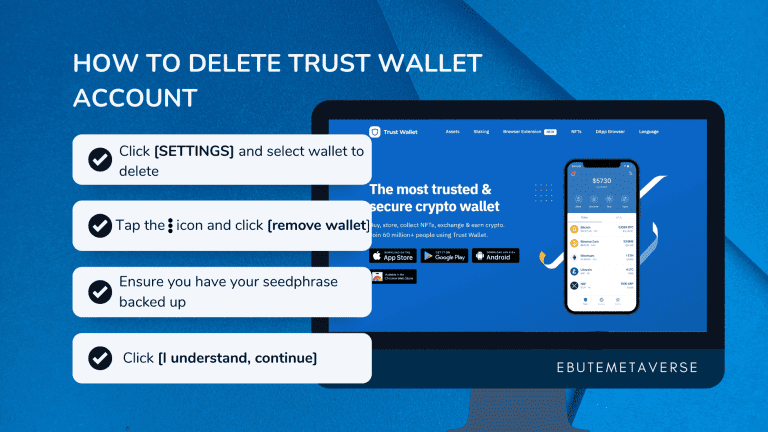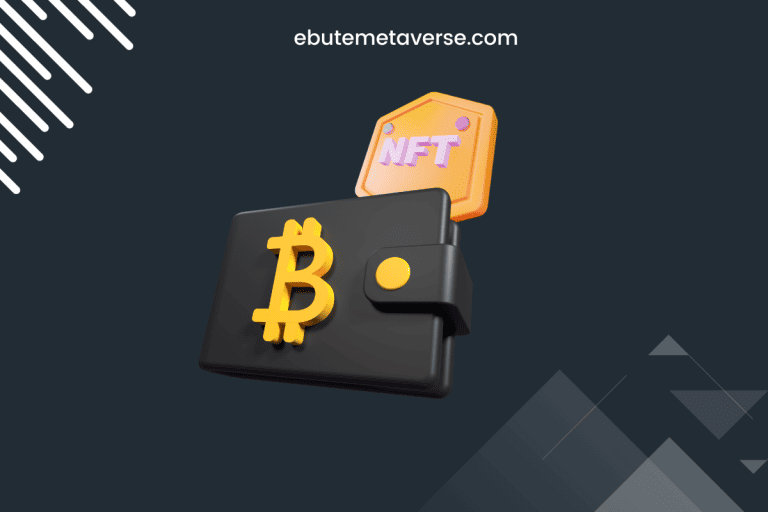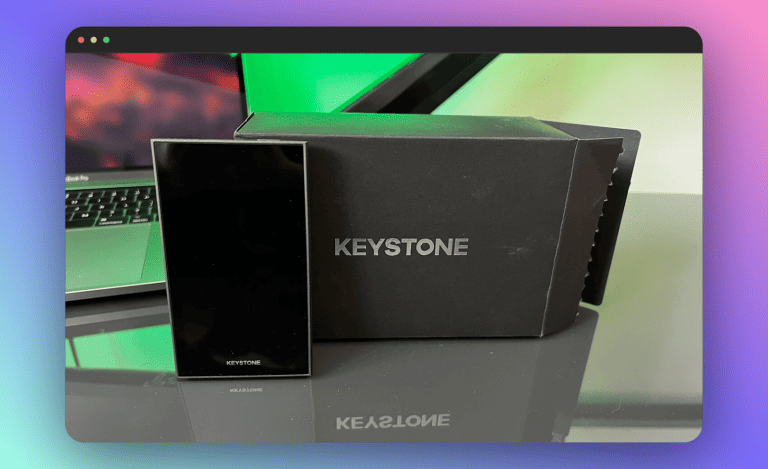What Is an NFT Wallet + How to Choose the Best One
“What is an NFT Wallet?” is the question of the hour, sparking curiosity in the minds of many entering the realm of digital assets.
This crucial piece of technology is key to engaging with the innovative world of Non-Fungible Tokens (NFTs).
Having a deeper understanding of NFT wallets helps you to navigate this new frontier more effectively.
What Is an NFT Wallet? The Basics
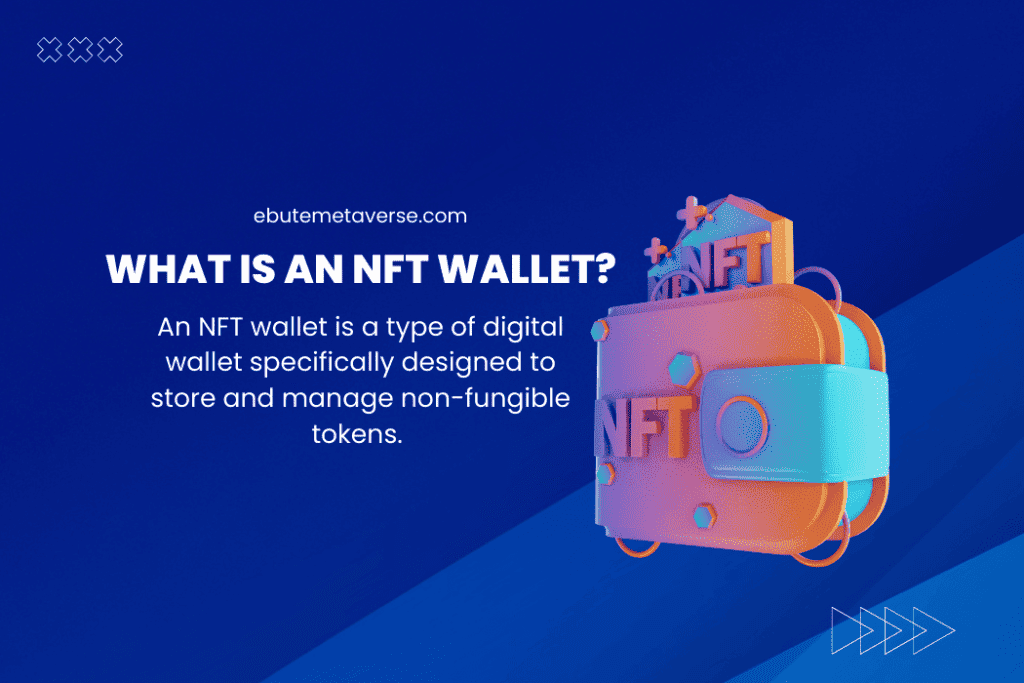
An NFT wallet is a type of digital wallet specifically designed to store and manage non-fungible tokens.
Unlike traditional cryptocurrencies like Bitcoin or Ethereum, which are identical to each other and can be exchanged on a one-for-one basis, NFTs are unique.
This uniqueness requires a particular type of wallet to handle them effectively.
Are NFT Wallets Free?
Now, let’s move on to another question you might be pondering over – “Are NFT wallets free?”
The answer isn’t a simple yes or no. Many NFT wallet providers offer free services, where you only have to pay the blockchain transaction fees when you buy or sell an NFT.
However, other wallets might charge a maintenance or subscription fee.
The costs associated with NFT wallets can be structured as follows:
- Free wallets: Simply pay the transaction fees.
- Subscription-based wallets: Pay a monthly or yearly fee.
- Transaction fee-based wallets: Pay a percentage of each transaction as a fee.
Significance of an NFT Wallet
Alright, we’ve covered what an NFT wallet is and whether they’re free. But why are they so important?
The unique characteristic of NFTs is both a boon and a bane.
On the one hand, they bring value and individuality. On the other, they require a specialized place for safekeeping.
An NFT wallet offers this dedicated space, providing security and ease of management for these digital assets.
It’s like a digital locker for your precious NFTs.
Moreover, an NFT wallet:
- Offers storage for your NFTs, keeping them secure.
- Facilitates buying, selling, and trading of NFTs.
- Allows easy management and organization of your NFT collection.
Features of an NFT Wallet
When it comes to NFT wallets, there’s more than meets the eye.
A host of features make these wallets the go-to solution for storing and managing your NFTs.
Here’s a closer look at some of these features:
Secure Storage
This one’s a given. The primary function of an NFT wallet is to offer a secure space for your NFTs.
Enhanced security measures such as encryption and two-factor authentication protect your digital assets from cyber threats.
User-Friendly Interface
A good NFT wallet is intuitive and easy to navigate. It enables the user to manage their assets efficiently, whether they’re a seasoned digital collector or a newbie to the world of NFTs.
Transaction Management
NFT wallets facilitate seamless transactions.
Whether you’re buying new NFTs, selling from your collection, or trading with other collectors, your NFT wallet is the hub of all these activities.
Compatibility
An NFT wallet must be compatible with various NFT marketplaces.
This compatibility allows users to browse and transact across multiple platforms, offering flexibility and variety.
Asset Visualization
Many NFT wallets offer visualization features, enabling users to view and appreciate their NFTs right in their wallets.
This is particularly beneficial for art and collectible NFTs.
Understanding the Different Types of NFT Wallets
Now that we’ve covered the key features, let’s look at the different types of NFT wallets out there.
Just as there are different types of physical wallets, there are various types of NFT wallets, each with its own pros and cons.
Software Wallets
Software wallets are programs that you can download on your computer or smartphone.
They offer a good balance between security and convenience, making them a popular choice among NFT enthusiasts.
Hardware Wallets
Hardware wallets are physical devices, similar to USB sticks, that store your NFTs offline.
They offer top-notch security as they’re immune to online hacking attempts.
However, they might not be as convenient for regular transactions.
Online Wallets
Online wallets are web-based platforms that allow you to access your NFTs from any device.
They offer great convenience and ease of use. However, they may be more vulnerable to cyber threats.
Mobile Wallets
Mobile wallets are app-based wallets for your smartphone.
They combine the convenience of online wallets with the enhanced security features of software wallets.
Some of the Most Popular NFT Wallets
Just like with any other technology, certain NFT wallets have risen to popularity due to their features, security, and ease of use. Some of these include:
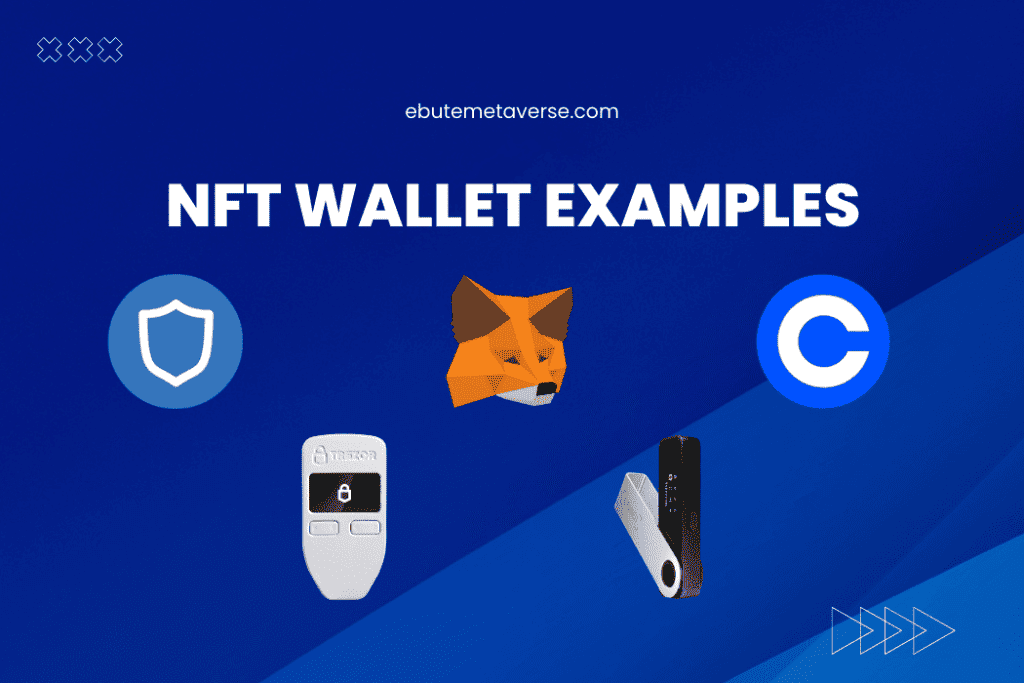
Metamask
Metamask is a browser extension and a mobile wallet that’s compatible with Ethereum-based NFTs. It’s known for its user-friendly interface and secure storage.
Phantom Wallet
Phantom is a versatile wallet for the Solana blockchain, known for being user-friendly and supporting a variety of digital assets, including NFTs.
One of its standout features is the sleek interface that offers a clear and visually pleasing overview of your NFTs.
Trust Wallet
Trust Wallet is a widely-used mobile wallet. It’s an NFT wallet and a multi-currency wallet, supporting Ethereum, Binance Smart Chain, and several other blockchains.
It boasts a clean and intuitive interface, making it a solid choice for beginners and seasoned users alike.
Coinbase Wallet
Coinbase Wallet, from the popular cryptocurrency exchange Coinbase, is a self-custody wallet, meaning you control your own keys.
It supports a variety of digital assets, including Ethereum-based NFTs. The integration with the Coinbase exchange makes it a convenient choice for those who already use the platform for cryptocurrency trading.
Ledger
Ledger is a hardware wallet that’s applauded for its top-tier security. It supports Ethereum-based NFTs and is a great choice if you prioritize security over convenience.
Enjin Wallet
Enjin Wallet is a mobile wallet designed with gamers in mind. It supports Ethereum, Binance Smart Chain, and Efinity, making it an ideal choice for game-related NFTs.
How to Select an NFT Wallet?
Choosing the right NFT wallet is crucial and depends on your specific needs and habits. Here are a few things to consider:
Compatibility
Ensure the wallet supports the blockchain where your NFTs exist. For example, if you hold Ethereum-based NFTs, your wallet must support Ethereum.
Security
Look for security features such as encryption, two-factor authentication, and the option to back up your wallet.
Usability
The wallet should have a user-friendly interface. If it’s too complicated, it could make managing your NFTs a daunting task.
Customer Support
Good customer support can be a lifesaver if you run into issues with your wallet. Make sure the wallet provider offers reliable support.
How to Get an NFT Wallet?
Getting an NFT wallet is a simple process:
- Choose a wallet that suits your needs.
- Download and install the wallet (for software or mobile wallets) or purchase and set up the device (for hardware wallets).
- Set up your wallet by creating a new account or importing an existing one.
- Secure your wallet by creating a strong password and setting up two-factor authentication.
What NFT Wallet Should I Use?
Knowing which NFT wallet to use depends on your specific needs.
If you frequently trade NFTs and want a simple wallet, go for Trust Wallet, Metamask, or WalletConnet. If security is your main concern, Ledger or Trezor may be your best option.
The Final Takeaway on What Is an NFT Wallet?
If you’ve ever wondered, “What is an NFT wallet?” you’re not alone. We’ve explained what NFT wallets are and their features in this guide.
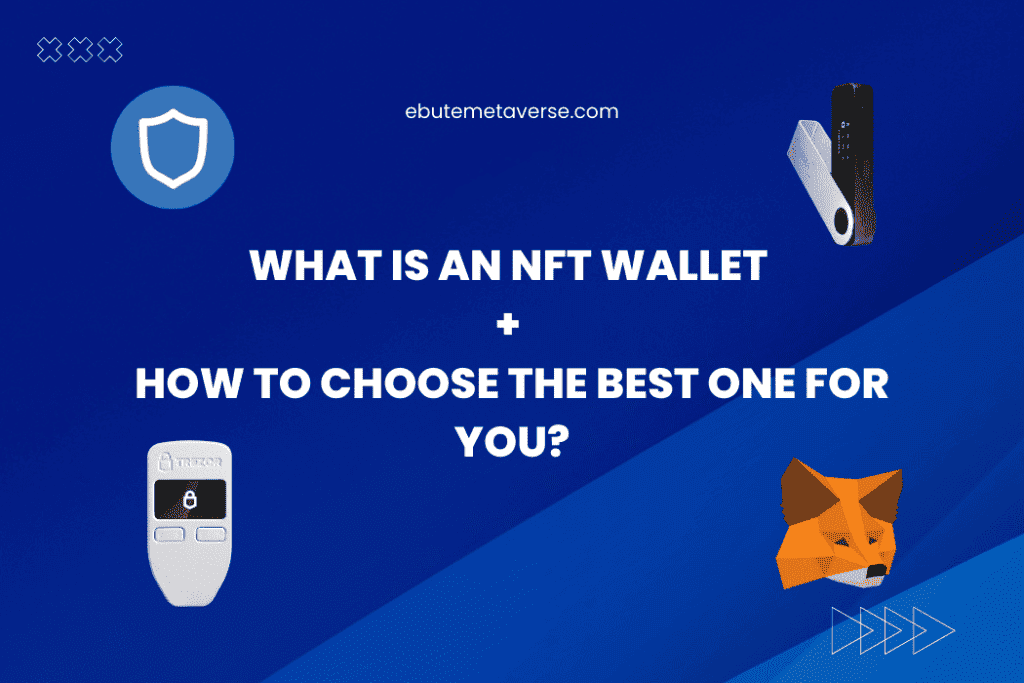
Choosing the right NFT wallet comes down to your personal preferences and requirements. Your choice should align with the following:
- the type of NFTs you hold
- the level of security you desire
- the convenience you seek in managing your digital assets.
Whether you go with Phantom, Trust Wallet, Coinbase, or Metamask, you should ensure it meets all your requirements. In the end, your wallet needs to make it easy and safe for you to experience the exciting world of NFTs.

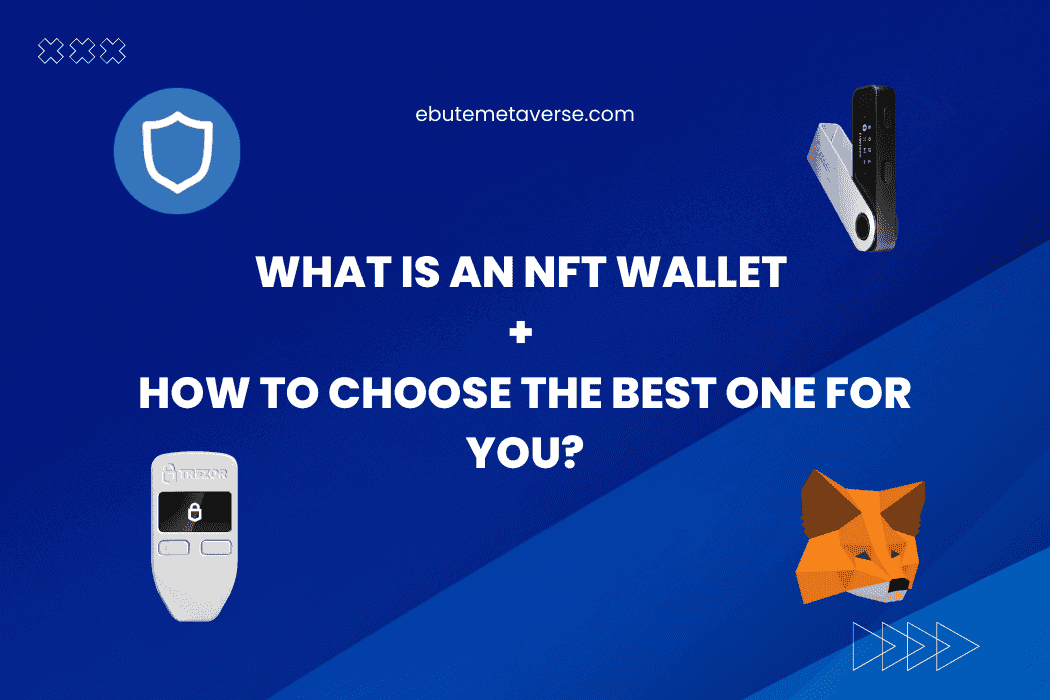

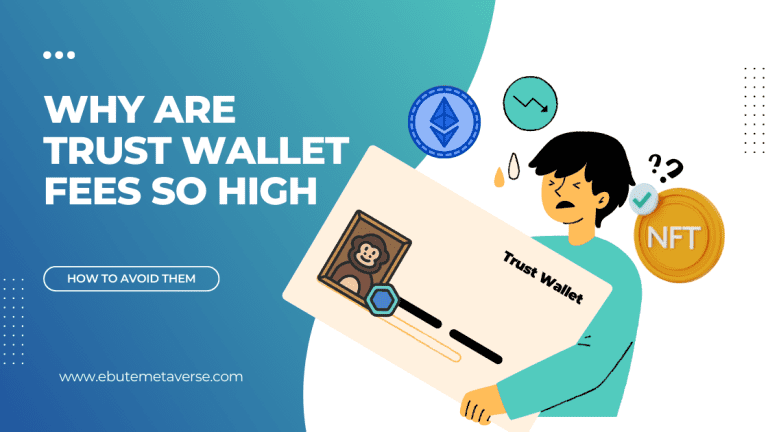
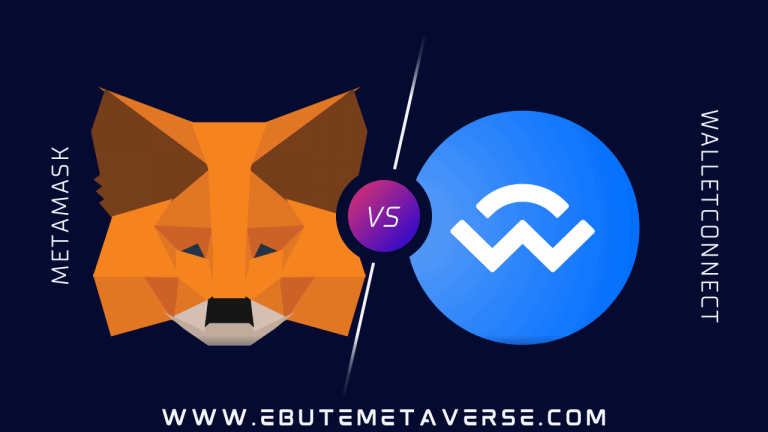
![How To Transfer NFT To Another Wallet [Step-by-Step] 9 transferring NFTs to another wallet](https://ebutemetaverse.com/wp-content/uploads/2022/06/how-to-trasnfer-NFTs-768x474.png)
